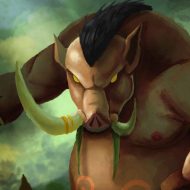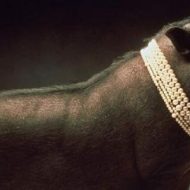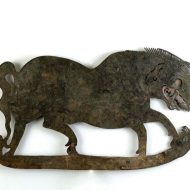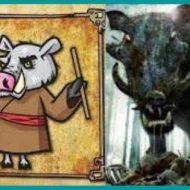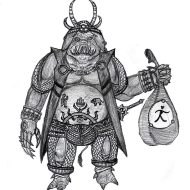Babi Ngepet : The Shape-Shifting Boar of Greed and Darkness
Listen
At a glance
| Description | |
|---|---|
| Origin | Indonesian Mythology |
| Classification | Animals |
| Family Members | N/A |
| Region | Indonesia |
| Associated With | Black Magic, Robbery |
Babi Ngepet
Introduction
Babi Ngepet is a notorious figure in Indonesian folklore, especially across Java, where tales warn that a person consumed by greed may perform pesugihan—a black-magic pact—to gain instant wealth by transforming into a boar-like creature that steals money at night. In many retellings, the transformation is temporary and ritualized, and the gains come at the cost of the practitioner’s humanity and safety. The story functions as a moral parable about shortcuts to riches and a community explanation for sudden prosperity or mysterious thefts. In recent years, the legend has even surfaced in hoaxes and viral panics, showing how living folklore adapts to the digital age.
Physical Traits
Descriptions of Babi Ngepet vary by region, but most agree on a hulking, unnaturally agile wild boar that moves stealthily through villages at night. Witness accounts (and cautionary tales) portray a creature with bristling black hair, glinting eyes, and a peculiar habit of rubbing its body along walls, doors, and cupboards—an act believed to magically siphon valuables from inside the home. Because ordinary boars also raid fields, villagers historically treated any night-roaming boar as suspect, often chasing or killing it on sight. These features blur the line between real animal behavior and supernatural theft, reinforcing how folklore maps anxiety onto familiar natural threats.
Family
Unlike many mythic beings with clear divine ancestry, Babi Ngepet has no familial pantheon. Instead, its “kin” are other wealth-seeking spirits in Indonesian lore—such as the tuyul (a childlike spirit said to steal money) and Nyi Blorong—that likewise revolve around pacts, offerings, and moral transgression. Together, they form a cultural cluster of narratives that condemn ill-gotten gain and caution against envy and appearance-based judgments in tight-knit communities.
Other Names
“Babi Ngepet” is Indonesian for roughly “the pig that slips/squeezes in,” reflecting its furtive, infiltrating nature. Regional tellings occasionally refer to it simply as babi pesugihan (“the wealth-seeking pig”), emphasizing the transactional magic rather than the creature itself. In popular articles and social posts in English, it’s often glossed as the “boar demon” or a “shape-shifting boar.” The core concept—human-to-boar transformation tied to wealth—remains consistent across these labels.
Powers and Abilities
At the center of the myth is transformation: a human practitioner dons ritual garments (often described as a black cloak) and, through pesugihan, becomes a boar-like being. While the transformed Babi Ngepet prowls, an assistant stays home to watch a candle floating on water; a flickering or dimming flame signals danger, prompting the assistant to end the rite so the practitioner can revert to human form. The creature’s signature ability is wealth-theft at a distance—by brushing against walls or furniture, money and jewelry “disappear” and later materialize in the cloak when the rite ends. In practice, these motifs align with broader Southeast Asian shapeshifter traditions and social explanations for unexplained losses or sudden prosperity.
Modern Day Influence
Even in the 21st century, Babi Ngepet surfaces in news cycles, social media, and entertainment, often at moments of economic anxiety. A widely reported 2021 incident near Depok sparked a frenzy when locals claimed to have hunted and killed a “babi ngepet”; authorities later debunked the story as a hoax, illustrating how folklore can catalyze real-world vigilante behavior and viral misinformation. Journalists and scholars used the case to discuss how poverty, envy, and rumor can converge into moral panic—now amplified by the internet.
Culturally, commentators read Babi Ngepet as a symbol of greed and shortcut ethics, a Southeast Asian counterpart to “deal-with-the-devil” narratives. Its persistence reflects social tensions around wealth gaps, the visibility of sudden riches, and the desire to locate hidden causes for misfortune. Books on Southeast Asian culture have long noted the moral and ecological subtext of animal-spirit tales, where familiar creatures (like boars) personify both natural threats and human vices. Today, the figure appears in blogs, YouTube explainers, podcasts, horror features, and even classroom discussions about critical thinking and media literacy.
In Indonesia’s urban folklore, Babi Ngepet circulates alongside tuyul memes and neighborhood rumors, providing a shared vocabulary for talking about envy, theft, and fairness. That the legend continues to adapt—from whispered village stories to livestreamed “hunts”—shows how myth thrives as a living conversation about community values.
Related Images
Frequently Asked Questions
What is the pig demon mythology?
This is arguably the most well-known pig demon in mythology. Originating from Java and Bali, the Babi Ngepet is a boar-like creature invoked through “Pesugihan,” a form of black magic promising wealth in exchange for the practitioner’s humanity. The Babi Ngepet possesses the sorcerer at night, transforming them into a hideous pig-like creature that steals from others to fulfill the pact.
What is the mythical creature babi?
In the regions of Java and Bali, a boar demon is frequently encountered, believed to embody the practices of “pesugihan babi” black magic. This malevolent entity is portrayed as a boar with piercing eyes and radiant teeth, serving as a representation of those delving into dark arts.
What is the story behind babi ngepet?
The Babi Ngepet is a creature from Indonesian folklore that originates from black magic rituals called “pesugihan babi.” People who practice this ritual transform into boar-like beings to steal wealth, but it comes at the cost of their humanity. The Babi Ngepet symbolizes the dangers of greed and seeking wealth through unethical means, serving as a cautionary tale to be content with what one has.
Watch
Source
McNeely, J. A., & Wachtel, P. S. (1990). Soul of the Tiger: Searching for Nature’s Answers in Exotic Southeast Asia. Doubleday.
Danandjaja, J. (1997). Folklor Indonesia: Ilmu gosip, dongeng, dan lain-lain. Pustaka Utama Grafiti.
South China Morning Post. (2021, May 2). Indonesia’s supernatural shape-shifting boar demons—and the hoaxes they inspire. https://www.scmp.com scmp.com
The Jakarta Post. (2021, April 29). The boar demon hunt that shook the internet. https://www.thejakartapost.com
VOI News. (2021, April 28). Tracing the history of the Ngepet pig. https://voi.id
Ghozali, A. S. (n.d.). International Review of Humanities Studies: Articles discussing pesugihan, tuyul, and related folklore in public discourse. University of Indonesia Scholars Hub. https://scholarhub.ui.ac.id
Idebahasa Journal. (2019). The translation of Indonesia myth characters… (PDF). https://jurnal.idebahasa.or.id Ide
Wikipedia contributors. (n.d.). Babi Ngepet. In Wikipedia, The Free Encyclopedia. Retrieved November 7, 2025, from https://en.wikipedia.org/wiki/Babi_ngepet


